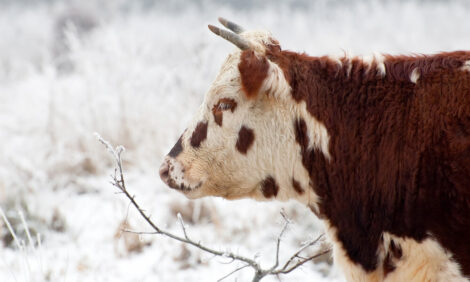



How Fermented Cabbage Can Keep Infections at Bay
FINLAND - Researcher Susanna Rokka of MTT Agrifood Research Finland has shown in her doctoral thesis that antibodies extracted from bovine colostrum as well as lactobacilli extracted from fermented cabbage and other sources prevent the action of pathogenic bacteria in the gastrointestinal tract.Rokka studied the effects of bovine colostrum, of specific antibodies produced in the bovine colostrum by vaccinating cows, and of lactobacilli on infections in the gastrointestinal tract. The infections studied were gastritis, dental caries and the E. coli infection in calves. Helicobacter pylori, which causes gastritis and gastric ulcer, is also often the cause of stomach cancer.
Vaccinating cows with specific pathogens can create antibodies in their blood which are then transferred to the cow?s milk as well. Concentrations are particularly high in colostrum, which is produced by the cow immediately after parturition.
Colostrum shown to tackle helicobacteria and dental caries
In tests, an immune colostrum preparation could prevent helicobacter infection in mice. The preparation could not cure an existing infection but, combined with an antibiotic, it reduced inflammation and the number of helicobacteria in the gastrointestinal tract more efficiently than an antibiotic alone. Colostrum also promoted the elimination of colibacteria in the bloodstream of calves.
The research also investigated how lactobacilli operate in gastrointestinal infections. It was found that lactobacilli combined with an immune milk preparation effectively prevented Streptococcus mutans, the root cause of dental caries, from adhering to tooth surface, and Helicobacter pylori from adhering to the human gastric cells. Both were found to also relieve inflammation.
The study also revealed that in milk fermented with lactobacilli LGG, antibodies for caries remained functional for a long time.
TheCattleSite News Desk


